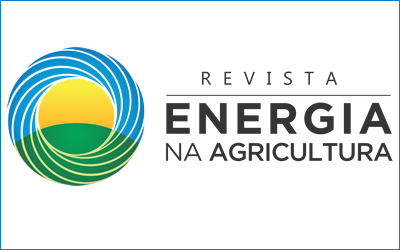TEORES DE NUTRIENTES, VALORES ENERGÉTICOS E LEGALIDADE EM BEBIDAS NÃO-ALCOÓLICAS COMERCIAIS DE MANGA E DE GOIABA
DOI:
https://doi.org/10.17224/EnergAgric.2013v28n2p115-121Abstract
O objetivo deste trabalho foi comparar os teores de nutrientes (carboidratos, proteínas e gorduras totais) e valores energéticos informados nos rótulos de bebidas não-alcoólicas comerciais de manga e de goiaba com os resultados encontrados em análises laboratoriais e padrões estabelecidos pela legislação brasileira. Dentre as bebidas de manga, foram analisadas quatro marcas de sucos tropicais não adoçados, três adoçados, seis néctares convencionais e três light. Dentre as de goiaba, quatro sucos tropicais não adoçados, três adoçados, cinco néctares convencionais e três light. Os teores de carboidratos, proteínas e gorduras totais foram obtidos através de análise química dessas bebidas, enquanto que os seus valores energéticos foram estimados através de cálculo centesimal, utilizando fatores de conversão para carboidratos (4kcal/g), proteínas (4kcal/g) e gorduras totais (9kcal/g). As bebidas cujos teores de nutrientes e valores energéticos obtidos em laboratório excederam o intervalo de tolerância de ± 20%, calculado a partir dos dados declarados em suas embalagens, foram consideradas fora dos padrões de qualidade. Das dezesseis bebidas comerciais de manga analisadas, metade declarou os teores de nutrientes e valores energéticos, em conjunto, de maneira correta em seus rótulos. Enquanto que, das quinze de goiaba, cinco puderam ser consideradas dentro dos padrões de qualidade.
Palavras-chave: Mangifera indica, Psidium guajava, rotulagem.
NUTRIENTS CONTENTS, ENERGY VALUES, AND LEGALITY OF THE MANGO AND GUAVA NON-ALCOHOLIC BEVERADES COMMERCIAL
SUMMARY: The objective of this research was to compare nutrients contents (carbohydrates, protein, and total fat) and energy values informed on the labels of commercial mango and guava non-alcoholic beverages with results found in laboratory tests and the standards established by Brazilian legislation. Among the mango beverages, four trademarks of unsweetened tropical juices, three sweetened, six conventional nectars, and three light were analyzed. Four guava unsweetened tropical juices, three sweetened, five conventional nectars, and three light were also analyzed. The carbohydrate, protein, and total fat contents were obtained by chemical analysis of these beverages, while their energy values were estimated by centesimal calculating, using conversion factors for carbohydrates (4kcal/g), protein (4kcal/g), and total fat (9kcal/g). The beverages that nutrients contents and energy values obtained in the laboratory exceeded the tolerance of ± 20%, calculated from data informed in their packaging, were considered outside of quality standards. Of the sixteen commercial mango beverages analyzed, half had the nutrients contents and energy values together correctly declared on their labels. Of the fifteen of guava beverages, only five could be considered within the quality standards.
Keywords: Mangifera indica, Psidium guajava, labeling.
Downloads
Published
How to Cite
Issue
Section
License
Esta revista proporciona acesso publico a todo seu conteúdo, seguindo o princípio que tornar gratuito o acesso a pesquisas gera um maior intercâmbio global de conhecimento. Tal acesso está associado a um crescimento da leitura e citação do trabalho de um autor. Para maiores informações sobre esta abordagem, visite Public Knowledge Project, projeto que desenvolveu este sistema para melhorar a qualidade acadêmica e pública da pesquisa, distribuindo o OJS assim como outros software de apoio ao sistema de publicação de acesso público a fontes acadêmicas.





